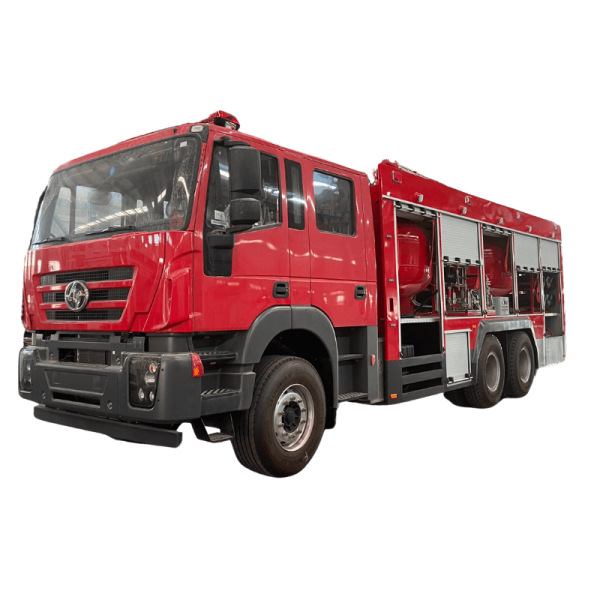Introduction:
Work trucks play a crucial role in various industries, from construction and agriculture to transportation and logistics. These versatile vehicles are designed to withstand heavy loads and rigorous tasks. To ensure optimal performance and efficiency, work truck owners and operators must pay attention to every component, including the exhaust system. A well-designed exhaust system not only reduces noise and emissions but also enhances engine performance and fuel efficiency. In https://www.heli-truck.com/howo-4x2-mobile-led-billboard-truck/ , we will delve into the world of work truck exhaust systems, exploring their importance, components, types, and benefits, ultimately highlighting the key factors to consider when selecting the right exhaust system for your work truck.
1. The Importance of Work Truck Exhaust Systems:
1.1. Engine Performance: The exhaust system plays a critical role in maintaining engine performance. By effectively removing exhaust gases from the engine cylinders, the system helps prevent back pressure, allowing the engine to breathe properly. This results in improved horsepower, torque, and overall performance.
1.2. Emission Control: Work truck exhaust systems play a vital role in reducing harmful emissions, such as carbon monoxide, nitrogen oxides, and particulate matter. With increasingly stringent environmental regulations, work trucks must comply with emission standards to minimize their ecological impact.
1.3. Noise Reduction: Work trucks often operate in urban or residential areas where noise pollution can be a concern. A well-designed exhaust system helps reduce noise levels, ensuring a quieter operation that is more respectful to the surrounding environment and communities.
1.4. Fuel Efficiency: An efficient exhaust system can contribute to improved fuel economy. By optimizing the flow of exhaust gases, it reduces the energy loss associated with excessive back pressure, allowing the engine to operate more efficiently and consume less fuel.
2. Components of Work Truck Exhaust Systems:
2.1. Exhaust Manifold: The exhaust manifold collects and channels exhaust gases from individual cylinders into a single pipe, preparing them for further processing.
2.2. Catalytic Converter: The catalytic converter is a crucial component that helps reduce harmful emissions by converting pollutants into less harmful gases through chemical reactions.
2.3. Diesel Particulate Filter (DPF): Commonly found in diesel work trucks, DPFs capture and trap particulate matter (soot) emitted by the engine, preventing it from being released into the environment.

2.4. Muffler: The muffler is responsible for reducing noise levels by utilizing sound-absorbing materials and strategically designed chambers that cancel out the noise produced by the engine.
2.5. Exhaust Pipe: The exhaust pipe connects all the components of the exhaust system, allowing the exhaust gases to flow from the engine to the tailpipe.
3. Types of Work Truck Exhaust Systems:
3.1. Single Exhaust System: This system consists of a single exhaust pipe that collects and channels the exhaust gases from the engine. It is commonly found in smaller work trucks with less demanding performance requirements.
3.2. Dual Exhaust System: Dual exhaust systems feature two separate exhaust pipes that provide improved airflow and performance. They are often found in larger, high-performance work trucks and heavy-duty applications.
3.3. Turbo-Back Exhaust System: Turbo-back exhaust systems are designed for turbocharged work truck engines. They replace the entire exhaust system, including the downpipe, catalytic converter, and muffler, providing better flow and increased power output.
3.4. Cat-Back Exhaust System: Cat-back exhaust systems replace the exhaust components from the catalytic converter to the tailpipe, offering improved performance, sound, and aesthetics without modifying the vehicle's emissions control systems.
4. Benefits of Upgrading Work Truck Exhaust Systems:
4.1. Increased Power: Upgrading to a high-performance exhaust system can enhance engine power and torque, resulting in improved work truck performance and productivity.
4.2. Improved Fuel Efficiency: An efficient exhaust system reduces back pressure, allowing the engine to operate more efficiently and consume less fuel. This translates into cost savings and reduced environmental impact.
4.3. Enhanced Sound: Upgrading the exhaust system can provide a more aggressive and sporty sound, which not only adds to the work truck's aesthetics but also enhances the overall driving experience.
4.4. Durability and Longevity: High-quality aftermarket exhaust systems are often built with superior materials and craftsmanship, ensuring durability and longevity, even under demanding work conditions.
5. Factors to Consider When Selecting a Work Truck Exhaust System:
5.1. Work Truck Application: Consider the specific requirements of your work truck's application, such as towing capacity, payload, and terrain. This will help determine the optimal exhaust system that can handle the demands of your work environment.
5.2. Compatibility: Ensure that the exhaust system you choose is compatible with your work truck's make, model, and engine type. This will guarantee a proper fit and optimal performance.
5.3. Emission Regulations: Check local emission regulations to ensure that the exhaust system you select complies with the required standards. Non-compliance can lead to fines and legal issues.
5.4. Quality and Reputation: Research reputable manufacturers known for producing high-quality exhaust systems. Special vehicle route optimization and testimonials to gauge the reliability and performance of the products.
5.5. Warranty and After-Sales Support: Consider the warranty offered by the manufacturer and the availability of after-sales support. A reliable warranty and accessible customer service can provide peace of mind and assistance in case of any issues or concerns.
Conclusion:
The exhaust system of a work truck is a critical component that impacts engine performance, emissions control, fuel efficiency, and noise levels. Upgrading to a high-quality exhaust system can enhance power, fuel economy, and overall work truck performance. By considering factors such as work truck application, compatibility, emission regulations, quality, and warranty, work truck owners and operators can select the most suitable exhaust system for their specific needs. Investing in the right exhaust system not only benefits the work truck but also contributes to a more sustainable and efficient operation.
